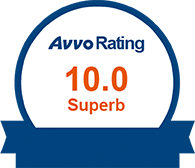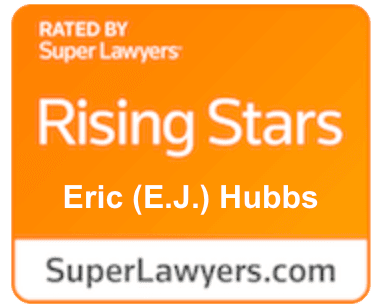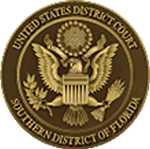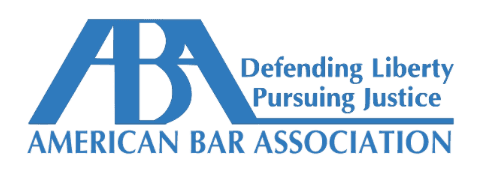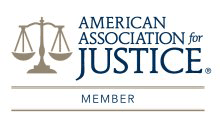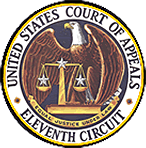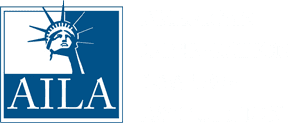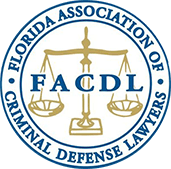
Your Case Deserves Immediate Attention - Call Hubbs Law Today
Miami Bank Fraud Attorney
Bank Fraud is not limited to Wall Street and high-ranking executives in the banking business. The crime could be committed at an individual’s computer or by filling out a piece of paper at a local bank.
Bank Fraud simply involves a scheme to defraud a federally insured financial institution by using false or fraudulent pretenses, misrepresentations, or false promises about a material fact. An example could be an individual that knowingly makes false representations on a loan application to a bank for the purposes of financial gain.
Bank Fraud is a serious federal crime.
The charge carries a maximum sentence of 30 years in a federal prison. In addition, if the defendant is not a U.S. citizen, he or she could be subjected to being placed in removal proceedings.
Attorney for Bank Fraud in Miami
If you were arrested for Bank Fraud in Miami, Florida, you should immediately contact a seasoned criminal defense attorney. Your freedom is too important to risk.
Hubbs Law attorneys, E.J. and Erika Hubbs, have substantial experience in the courtroom. As former prosecutors, they have tried over a hundred criminal cases.
As defense attorneys, they aggressively defend the rights of all clients charged with fraud crimes.
Hubbs Law handles all types of white collar crimes including Bank Fraud in Miami-Dade County and surrounding areas including South Miami, North Miami, Homestead, Hialeah, Cutler Bay, Kendall, Pinecrest, and Palmetto Bay, as well as other cities and areas in Florida.
Contact Hubbs Law at (305) 570-4802 to immediately speak with a qualified attorney to discuss the facts of your case. Hubbs Law offers free initial consultations for all criminal cases. Call today to schedule your appointment.
Elements for Bank Fraud
Bank Fraud is prosecuted under federal statute 18 U.S.C. 1344. Under that statute, a defendant can be convicted of Bank Fraud if the government proves the following four elements beyond a reasonable doubt:
- The Defendant knowingly carried out or attempted to carry out a scheme to either defraud a financial institution or to get money, assets or other property from a financial institution, by using false or fraudulent pretenses, representations, or promises about a material fact;
- The false or fraudulent pretenses, representations, or promises about a material fact were material;
- The Defendant intended to defraud the financial institution; and
- The financial institution was federally insured.
The elements lay out two essential theories of prosecution under the statute for Bank Fraud. A defendant can commit this crime by defrauding a financial institution or obtaining money or funds from the financial institution by means of material false or fraudulent pretenses, representations, or promises. See United States v. Dennis, 237 F.3d 1295, 1303 (11th Cir. 2001).
It’s important to note that the prosecution must prove more that just deception to find the Defendant guilty. The government is required to prove that the Defendant intended to cause injury or loss. See United States v. Takhalov, 827 F.3d 1307, 1315 (11th Cir. 2016).
In addition, to these crimes, individuals can be charged with similar crimes connected to bank fraud arising from these elements such as mail fraud, wire fraud, making false statements, and more, depending on the facts of the case.
Is Bank Fraud a Felony in Florida?
Bank fraud is a third-degree felony in Florida, and the punishment goes as follows:
- Up to 30 years in federal prison;
- Probation up to five years;
- A $5,000 fine.
Defenses to Bank Fraud
If you were charged with Bank Fraud, you should not assume your case will result in a conviction. You may have legal defenses to this crime including:
- Lack of Knowledge: The federal government must prove that you “knowingly” carried out or attempted to carry out a “scheme to defraud”. If you did not knowingly carry out a scheme to defraud, you may have a legal defense. For example, if you accidentally misrepresented a fact on a bank application that gave you a higher loan, then you could be found not guilty because you did not knowingly misrepresent the fact.
- Lack of a Material Fact: The federal government must also prove that the false or fraudulent pretenses, representations, or promises related to a material fact. A “material fact” is an important fact that a reasonable person would use to decide whether to do or not do something. If the false statement is not material, then you are legally not guilty of the crime. For example, if you misrepresented your age on a bank application, you could be found to be not guilty because possibly age is not a material fact that would be relied upon by the bank.
- Lack of Intent to Defraud or Cause Loss or Injury: The federal government must prove that you intended to defraud the financial institution. To act with “intent to defraud” means to act knowingly and with the specific intent to use false or fraudulent pretenses, representations, or promises to carry out loss or injury. Similar to the lack of knowledge defense, if you had no intent to defraud, then you could be found not guilty. In addition, if you did not intend to cause loss or injury to the victim, you could be found not guilty as well.
- Bank not “Federally Insured” Financial Institution: The federal government must prove the financial institution was “federally insured”. Courts have found that this requirement is an essential element of the crime of Bank Fraud that must be proven beyond a reasonable doubt. United States v. Scott, 159 F.3d 916, 921 (5th Cir. 1998). A list of federally insured banks can be found here. If the bank alleged in the indictment is not federally insured, you should be found not guilty of the crime.
Additional Resources
District Court for the Southern District of Florida – find information for every court location in the Southern District of Florida, judge information, attorney information, and case information.
Federal Bureau of Investigations (FBI)- The FBI is the law enforcement agency in charge of enforcing numerous federal crimes including terrorism, counterintelligence, cyber crime, corruption, civil rights violations, organized crime, white collar crime, violent crime, and more.
United States Marshalls – the United States Marshalls are the law enforcement agency in charge of enforcement orders of federal courts in the United States. This includes providing security in the courtroom and executing fugitive arrest warrants.
Bureau of Justice Statistics – find statistics for all types of crimes including arrests and convictions.
The Federal Deposit Insurance Corporation (FDIC) – an independent agency of the U.S. government that protects depositors of insured banks against loss in the event the bank fails.
Find a Bank Fraud Attorney in Miami, FL
If you were charged with Bank Fraud in Miami, FL you should contact an aggressive, experienced criminal defense attorney.
Hubbs Law defends clients charged with all types of white collar crimes in Miami and throughout Miami-Dade County, including Hialeah, North Miami Beach, Homestead, Kendall, North Miami, South Miami, and anywhere else in the South Florida area.
At Hubbs Law, your first consultation is always free for federal criminal defense cases. Call us today to schedule your free consultation at (305) 570-4802.

Attorneys E.J. & Erika Hubbs
As professional Miami criminal defense attorneys, we take every case personally give every client the deliberate care it deserves. Our clients become part of our family and we fight relentlessly for their rights. Read more about us to find out how we can help you.

-
"The moment I spoke to Hubbs (the attorney), I was hopeful. He cared to listen, was honest, gave me his humble opinion, listed possible outcomes, and most importantly, he told me to come in because he thought there was a fighting chance."Carlos G.
-
"Erika was an absolute gem, she answered all our questions, was accommodating and let us know she needed to research my wife’s visa before telling us whether she would take our case. After doing research, she thankfully took our case. She made the pro"
-
"I highly recommend Hubbs Law, P.A. When I found out my license was suspended for a ticket I did not know I had, I was scared and did not know where to go from there."Christina K.


